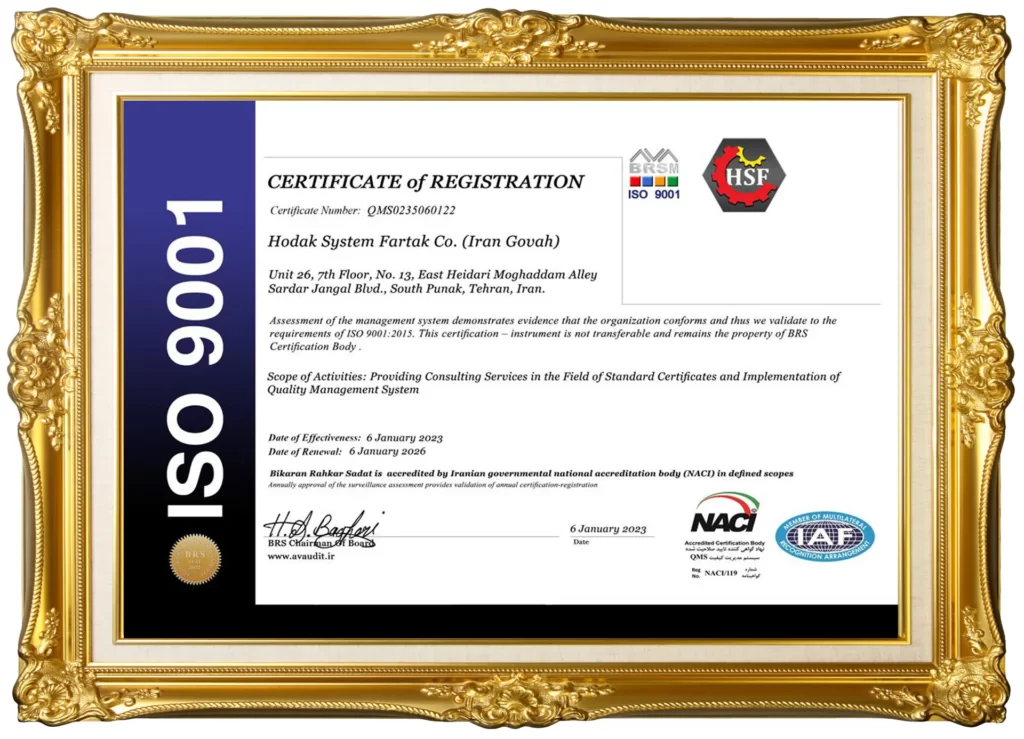An Overview of BSI – The British Standards Institution
BSI, also known as the British Standards Institution, is a globally recognized organization that provides a range of services related to standards, certification, training, and consulting. Founded in 1901, BSI has over a century of experience in developing and publishing standards that help organizations improve their products, services, and overall performance.

BSI is headquartered in London, UK, and has operations in over 150 countries around the world. It is a non-profit organization that is dedicated to promoting excellence in business practices and supporting organizations in achieving their goals through the use of standards and best practices. BSI’s mission is to help organizations build resilience, drive innovation, and deliver sustainable performance through standards-based solutions.
Over the years, (BSI) has developed a reputation as a trusted provider of standards and certification services. Its work covers a wide range of sectors, including aerospace, automotive, construction, food and beverage, healthcare, information technology, and many others. In this article, we will explore the history and evolution of (BSI), its products and services, impact on global standards, role in industry and society, membership and accreditation, and future plans and direction.
History and Evolution of British Standards Institution
BSI has a long and rich history that spans over a century. The organization was founded in 1901 as the Engineering Standards Committee (ESC) by a group of engineers who were concerned about the quality of engineering products in the UK. The ESC later changed its name to the British Engineering Standards Association (BESA) and then to the British Standards Institution in 1931.
Over the years, BSI has played a significant role in the development of standards and best practices across a wide range of industries. In 1947, BSI became the world’s first national standards body, and it played a leading role in the development of international standards, particularly through its work with the International Organization for Standardization (ISO).
In 1998, BSI became a public limited company, and in 2002, it was awarded a Royal Charter in recognition of its contribution to industry and society. Today, (BSI) continues to be at the forefront of standardization, certification, training, and consulting services. Its work helps organizations of all sizes and industries improve their products, services, and overall performance.
BSI Products and Services
BSI offers a range of products and services that help organizations improve their performance, manage risk, and achieve certification to internationally recognized standards. Some of its key products and services include:
- Standards development: (BSI) is involved in the development of national, European, and international standards across a range of industries. Its experts work with industry stakeholders to create standards that are relevant, effective, and reflect best practices.
- Certification: BSI provides certification services to organizations seeking to demonstrate compliance with various standards, including ISO 9001 (quality management), ISO 14001 (environmental management), and ISO 27001 (information security management), among others. BSI’s certification services are recognized globally and help organizations build trust and credibility with customers and stakeholders.
- Training: BSI offers a wide range of training courses to help individuals and organizations develop their knowledge and skills in areas such as quality management, environmental management, health and safety, and information security management. BSI’s training programs are delivered by experienced trainers and are available online, in-person, or via blended learning.
- Consultancy: (BSI) provides consultancy services to organizations looking to improve their performance, manage risk, and achieve certification to various standards. BSI’s consultants work closely with organizations to identify areas for improvement, develop customized solutions, and provide ongoing support to ensure successful implementation.
- Software solutions: (BSI) offers a range of software solutions that help organizations manage their compliance and certification processes more efficiently. Its software solutions include tools for document management, risk management, and audit management, among others.
British Standards Institution Membership and Accreditation
BSI offers membership and accreditation services to organizations that meet certain criteria. The British Standards Institution membership is designed for organizations that want to stay up to date with the latest standards and industry best practices. Members receive access to a range of resources, including publications, training programs, and events. They also have the opportunity to participate in standards development and contribute to the development of new standards.
BSI accreditation is available to organizations that have been assessed and found to meet specific requirements in areas such as quality management, environmental management, and occupational health and safety management. Accreditation indicates that an organization has demonstrated its ability to meet recognized standards and provides assurance to customers, regulators, and other stakeholders that the organization operates to a high level of quality and consistency.
BSI accreditation is recognized globally and can help organizations to win new business, improve their processes, and enhance their reputation. (BSI) offers accreditation services in partnership with national accreditation bodies, such as the Iran Govah (IG), and adheres to international standards and best practices.
BSI’s Future Plans and Direction
BSI’s future plans and direction involve continuing to provide innovative solutions and services to help organizations improve their performance and sustainability. The organization aims to be a trusted partner for its clients, offering solutions that help them achieve their business objectives while also meeting regulatory requirements and societal expectations.
One of BSI’s key goals is to help organizations manage and mitigate risks more effectively. This includes not only risks related to quality and safety but also those related to cybersecurity, data protection, and other emerging areas of concern.
BSI is also committed to promoting sustainability and helping organizations reduce their environmental impact. This includes offering services related to carbon management, sustainable supply chain management, and other sustainability-related issues.
Another area of focus for (BSI) is digital transformation. The organization is developing new digital tools and services to help clients manage their business processes more efficiently and effectively. This includes solutions related to cybersecurity, data analytics, and other areas of digital transformation
Overall, BSI’s future plans and direction are focused on providing innovative solutions and services to help organizations improve their performance, manage risks, and meet the challenges of a rapidly changing business environment.


